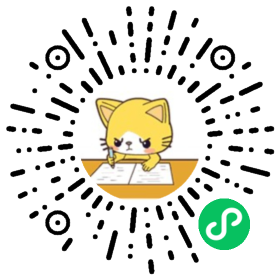【单选题】
列车根据运营计划或调度命令在指定的车站结束运营,通过人工现场确认方式进行列车清客,以下不属于信号系统的功能分配是___。
A. 应能根据运营计划,向车辆、综合监控和通信发送清客信息
B. 对常规的结束运营清客应自动扣车
C. 清客确认按钮被激活后应自动取消自动扣车,并自动发车回库或进入停车线
D. 车站PIS应能根据信号指令显示列车清客信息
查看试卷,进入试卷练习

微信扫一扫,开始刷题

答案
D
解析
暂无解析
相关试题
【单选题】
列车退出运营,运行至车辆基地或正线休眠点等指定区域进行休眠作业,以下不属于系统或人工对车辆基地或正线休眠的方式是___。
A. 多职能队员(【巡视】登车现地人工休眠
B. 中央调度员通过ATS执行远程人工休眠
C. 多职能队员【列控】登车现地人工休眠
D. 信号系统根据运营计划自动休眠
【单选题】
在场内作业中,对于非ATC控制区域的调车,车辆基地调度员人工排列进路,多职能队员【列控】按照调车计划采用___将列车驶入指定目的地。
A. FAM模式
B. AM模式
C. CAM模式
D. RM或EUM模式
【单选题】
因失电等原因,控制中心全部设备故障不可用,显示报警。调度工作转至站控。以下不属于信号系统的功能分配是___。
A. 应具备站控功能
B. 应能进行中控和站控的控制权转换
C. 站控后应能使FAM列车自动运行至下一站,并自动扣车
D. 应具备降级为车站管理的功能
【单选题】
在列车运营时,单台或多台辅助逆变器发生故障时,以下不属于信号系统的功能分配是___。
A. 应能执行远程故障复位
B. 应能将辅助逆变器故障发送至控制中心
C. 应能向车辆下发“远程故障复位”指令
D. 应能对所有辅助逆变器均故障的列车执行自动扣车
【判断题】
当列车停稳在站台后,自动开门功能失效,全列车车门无法进行自动开门,中央运营调度员可调用车站/列车视频进行确认,派遣多职能队员【巡视】使用PSL开启对应侧车门。
A. 对
B. 错
推荐试题
【单选题】
提任理(董)事长的,应当在主任(行长)岗位上工作 ___ 年以上,或者在事长、副主任(副行长)等市县行社副职实职岗位上工作 年以上。
A. 1 3
B. 2 3
C. 1 2
D. 2 2
【单选题】
因公护照、因公赴港澳通行证必须在出访人员回国后 个工作日内及时上缴外侨办集中保管;因私护照、因私赴港澳通行证、大陆居民往来台湾通行证必须于回国(境)后 ___ 个工作日内交由具有管理权限的人力资源部集中保管。
A. 5 5
B. 5 7
C. 7 5
D. 7 7
【单选题】
累计工作满 ___ 年的员工可申请年休假,休假前须提前 周报部门批准,部门作出相应工作安排后,填写《河南省农村信用社联合社请休假审批表》,按审批权限办理休假手续。国家法定休假日、休息日不计入年休假假期。
A. 1 1
B. 2 2
C. 10 10
D. 5 5

